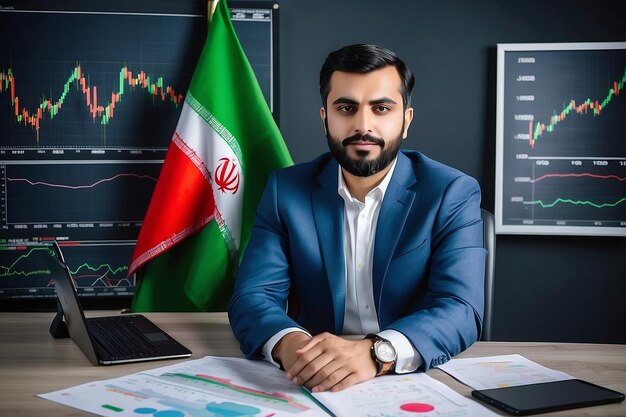Is Forex Currency Trading Halal? Understanding the Complexities
Forex trading is a global marketplace where currencies are exchanged, often attracting individuals interested in its dynamic nature and potential for profit. As the forex market becomes more accessible, especially with numerous online platforms, a significant question arises for many Muslim traders: Is Forex Currency Trading Halal? This query delves deep into the intersection of financial investments and Islamic principles, which emphasize ethical and socially responsible investing.
📜 The Basics of Forex and Islamic Finance
What is Forex Trading?
At its core, Forex trading, also known as foreign exchange trading, involves buying and selling currencies to profit from currency movements. The forex market operates 24 hours a day, five days a week, allowing traders to engage in trades across different time zones. Key features include:
- Leverage: Allows traders to control large positions with a relatively small investment.
- Liquidity: The forex market is one of the most liquid markets in the world, providing traders with the ability to enter and exit positions quickly.
Principles of Islamic Finance
Islamic finance operates under specific principles derived from the Quran that emphasize fairness and ethical behavior. Key tenets include:
- Riba (Interest): Charging or earning interest is prohibited.
- Gharar (Excessive Uncertainty): Engaging in transactions with excessive uncertainty is discouraged.
- Haram Industries: Investments should not be made in sectors that contravene Islamic values, such as alcohol or gambling.
The Question of Halal vs. Haram in Trading
For Muslims, determining whether a financial activity is halal (permissible) or haram (prohibited) involves evaluating the activity against Islamic guidelines. In the context of forex trading, scholars and experts have varying opinions, leading to no universal agreement.
🔍 Evaluating Forex Trading in an Islamic Context
The Debate Among Scholars
Halal Perspective: Some scholars argue that forex trading can be halal if conducted ethically and without involvement in haram activities. This view is contingent upon the following:
- Avoidance of Riba: Ensuring no interest-based transactions or income.
- Transparency: Clear and fair trading contracts that avoid excessive speculation.
Haram Perspective: Others assert that forex trading is inherently haram due to:
- Leverage: Often involves paying interest, thus conflicting with the principle of riba.
- Speculation: High speculation levels, equated with gambling, violate Islamic tenets of avoiding uncertainty.
Steps to Align Forex Trading with Islamic Principles
For Muslim traders inclined toward forex trading, adherence to Islamic principles can be achieved through:
- Islamic Forex Accounts: Many brokers now offer swap-free accounts (also known as Islamic accounts) that do not charge overnight interest rates. This adjustment ensures compliance with the prohibition of riba.
- Risk Management: Implementing measures to reduce speculation and uncertainty aligns with avoiding gharar.
📈 Practical Tips for Ethical Forex Trading
Key Considerations for the Conscientious Trader
- Choose the Right Broker: Opt for brokers offering Islamic accounts and ensure they have a reputation for transparency.
- Research Contract Terms: Ensure that terms of service do not involve interest payments or excessive speculation practices.
- Balance Risk and Reward: Use risk management tools like stop-loss orders to minimize uncertainty.
Visual Summary: Aligning Forex with Islamic Principles
To support your ethical trading journey, consider the following guidelines:
| Aspect | Action Plan |
|---|---|
| Avoid Riba | Use swap-free Islamic accounts. |
| Minimize Speculation | Apply risk management strategies. |
| Ensure Transparency | Research and understand brokerage terms. |
🌍 Understanding the Global Perspective
Variations in Scholarly Interpretations
It's essential to recognize that opinions diverge significantly across different regions and communities. Countries with larger Muslim populations, such as Malaysia and Indonesia, may have specific guidelines or fatwas regarding forex trading aligned with local customs and Islamic governance.
The Role of Personal Beliefs
Ultimately, a trader's decision might also be influenced by personal religious beliefs and the specific interpretations of local religious authorities. Engaging with knowledgeable scholars and conducting thorough research can guide individual decisions.
👥 Engaging with the Community for Deeper Insights
Trade discussions and community engagement can provide additional insights for traders uncertain about aligning their practices with Islamic principles:
- Forums and Online Communities: Participate in discussions with fellow Muslim traders to share insights and strategies.
- Consultation with Scholars: Seek advice from Islamic finance scholars or institutions for guidance tailored to personal circumstances.
💡 Closing Insight: Balancing Faith and Finance
Navigating the complexities of forex currency trading through the lens of Islamic finance requires careful consideration and informed decision-making. While some scholars offer paths to align forex trading with Islamic laws, others caution against its risks. As a trader, your journey involves balancing financial ambitions with ethical imperatives. By leveraging available resources, including Islamic brokerage services and community insights, you can make informed decisions that reflect both financial goals and religious commitments.
This comprehensive guide aims to provide clarity on the multi-faceted debate around whether forex trading is halal while supporting the reader with practical strategies to engage responsibly. With the ever-evolving nature of global finance, staying informed and engaged with the latest developments and ethical frameworks remains essential for conscientious trading.

